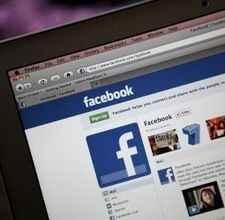As the epicenter of activism, college has traditionally hosted bouts between passionate students and the oppressive authority. Whether students were fighting the power, the flu, or for their right to party, young adults have been struggling to attain, as well as maintain, their freedom for years. A new threat against job seeking scholars has emerged over recent years and many of its victims have been stranded on their futons clinging to each status “like” as if digital popularity replaced oxygen in their lungs (or money in the bank). Although social networking is a product of the college experience, employers have transformed the procrastination instrument into a double edged sword slicing at the potential careers of party-hungry yet hard-working students.
Awareness
Students need to be aware of the ramifications of revealing too much personal information through social networking, according to Sarah Morell, a sophomore at the University of Chicago. “The kids who are setting up their Facebook accounts today don't realize ten years down the road, anyone such as a potential employer or admissions officer, can see every message, comment, or photo they have ever posted,” Morell said. “They view Facebook as a personal social space, where they can post comments with expletive language or pictures from a party with underage drinking. They need to understand that the Internet blurs the line between social and professional to a point where it doesn't exist at all.”
“It’s Not Who I REALLY Am…”
Although the internet can be a dangerous place to express one’s self, should students be penalized by employers for releasing politically incorrect content into cyberspace? According to Lauren Carroll, a sophomore at Duke University, students know that anything they post online is available to the world. However, employers should not rely on pictures or comments as the deciding factor in the hiring process.
“Many people make the decision to leave their personal lives at the door when they go to work every day,” Carroll said. “Monitoring their social networking prevents them from being able to do that. Just because someone is holding a solo cup does not mean that they aren't great employees in an office setting and if there are any pictures of unlawful activity, you can always untag yourself so the employer would never know.”
According to CareerRookie.com director Nathan Lippe, students should realize that social networking such as Facebook and Twitter are assets to finding jobs. “As long as students remove digital dirt such as images of drinking and drug use, nothing should scare them from employers,” Lippe said. “As for Twitter, students should keep their comments professional and refrain from complaining about their bosses or interviews with potential employers.”
While the debate over personal and professional boundaries rages on, students should take some preemptive measures in order to avoid the pink slip. Making your social networking pages private and untagging any incriminatory photos are beneficial but above all else…
If you wouldn't want a parent, employers, or a future political opponent to see it, don’t post it.



















